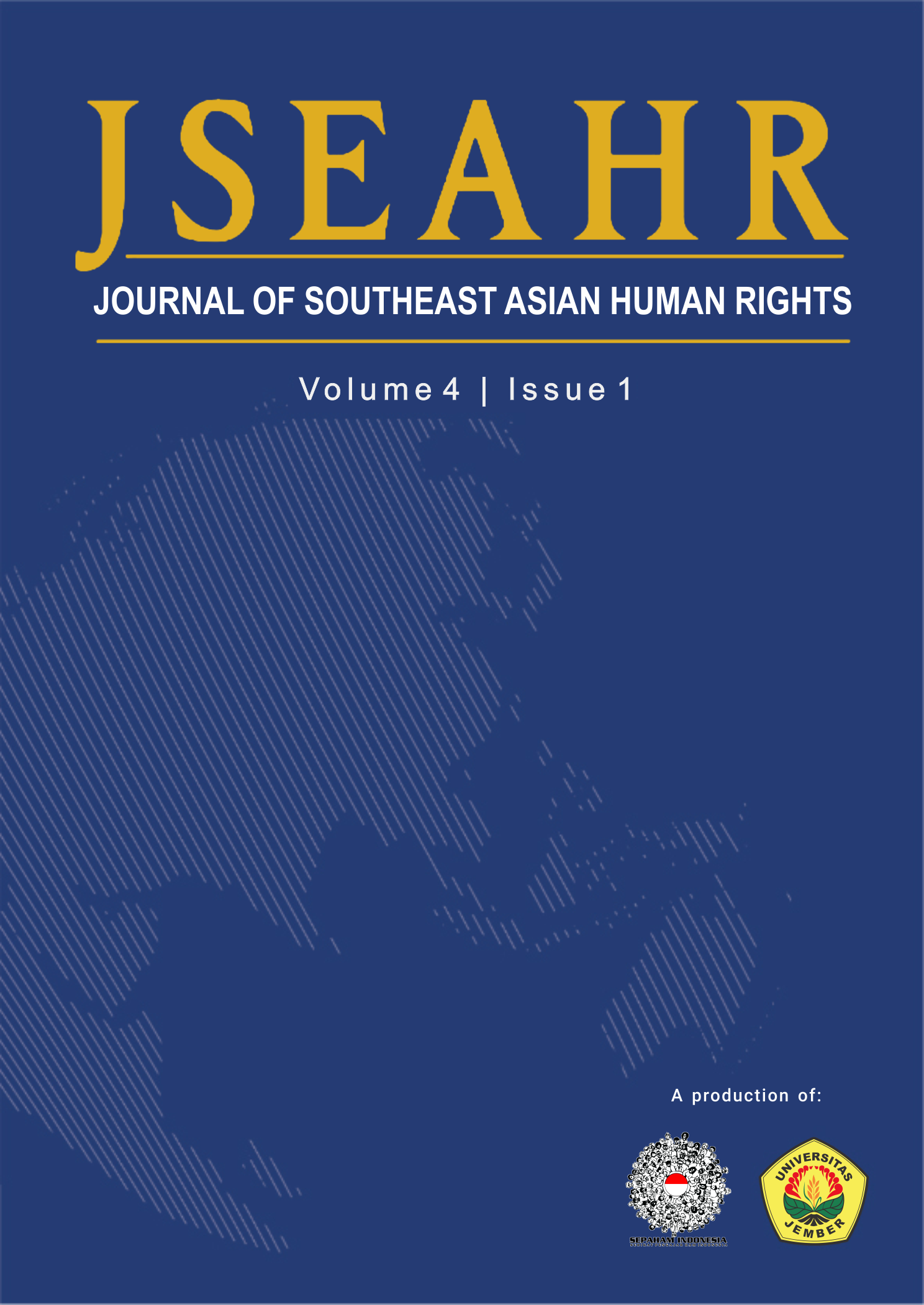Shrinking Space for Free Expression in Cambodia during Covid-19
Opportunistic repression or proportionate necessity?
DOI:
https://doi.org/10.19184/jseahr.v4i1.18093Keywords:
Freedom of expression, Shrinking space, Cambodia, Emergency lawsAbstract
In Covid-19, a vast number of countries have faced their biggest public health crisis in a century. For many such countries, the pandemic has emerged at a critical juncture following consecutive years of so-called democratic backsliding, where political space has narrowed and fundamental freedoms are under increasing threat. This trend is particularly observable within hybrid regimes under “Strongman†rule. A question posed by the Covid-19 crisis is the extent to which such regimes are taking advantage of the pandemic in order to hastily usher in new restrictions on human rights. Such leaders, it has been claimed, are actively capitalising on the crisis to further cement their rule, and to rapidly stock their arsenals with weapons of “lawfare†to more efficiently quash current or future dissent. A secondary, related question is the extent to which such accusations are being unfairly levelled against leaders of hybrid regimes for taking steps that liberal democracies are also taking without the same level of scrutiny from international observers. After all, the legitimate limitation by states of citizens’ exercise of their rights in times of exception is a norm firmly set out in international law. This article uses a case study of Cambodia, focusing on the impact of its Covid-19 response on the exercise of free expression. Applying the “three-part test,†it analyses whether Cambodia’s response falls within the permissible restrictions on freedom of expression during a time of normalcy (given Cambodia, at the time of writing, has not declared a state of emergency). It then also assesses whether Cambodia’s newly promulgated Emergency Law should be seen as a clear case of a hybrid regime exploiting Covid-19 to hasten restrictions on rights, or whether the criticism levelled against it is excessive, given the constitutional basis for such legislation and the critical nature of the Covid-19 pandemic.







